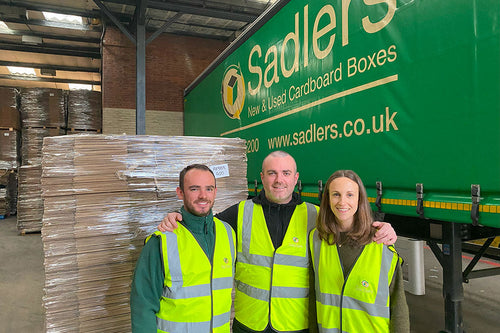‘Sustainable’ doesn’t have to mean more expensive

The general consensus amongst my friends is that a product that claims to be sustainable is going to be more expensive. We see it with clothing brands in our everyday lives - the ones with sustainable materials, practises and commitments generally have higher prices and we trust that they stay true to their word. We see it with cleaning products, food and furniture. Almost everything you can think of has a sustainable option that costs more. Almost.
My friends and I can’t be the only ones with this perception. In fact, various consumer surveys show that it’s a viewpoint shared by many. In Deloitte’s 2023 Sustainable Consumer Report it states that 62% of UK survey respondents (of a sample of 2,000) cited cost as the primary reason for not adopting a more sustainable lifestyle.
Deloitte also found that sustainable products are more likely to be purchased by high-income consumers.
So the perception amongst consumers is of sustainability equating to higher cost, but does that reflect the truth? Bain & Company found that companies charge on average a 28% premium for their more sustainable products.
Why do sustainable products often cost more?
Innovation
It takes investment, time and innovation to develop products and services that are more environmentally-friendly. In order to make the investment worthwhile, the product needs to be sold at a higher price.
More Expensive Materials
It makes sense for a product that claims to be more sustainable to last longer, and that means using more expensive materials. It might even mean innovations around the materials themselves – perhaps improving upon something that already exists, or swapping ingredients for ones less damaging to the environment.
Economies of Scale
New products coming to the market don’t have the scale of more established items, so it costs more to produce them. Eventually, over time, these costs do come down, but it’s usually the early adopters that pay the premium.
We’d like to shed light on some sustainable options that are actually cheaper, to challenge the general trend.
5 sustainable swaps that are actually cheaper
1. Plant-Based Proteins
Don’t all boo at once. But a tin of chickpeas is significantly cheaper than a chicken breast. Sure you’d need to eat 4 cans of chickpeas to get the same protein as a chicken breast (and let’s not talk about how that will destroy your relationships) but it’s a hell of a lot better for the environment and it’s dirt cheap. Plus, it fills you up. Balance is everything.
2. Cardboard Boxes
Who’s buying new cardboard boxes when Sadlers (that’s us) have the biggest stocks of used cardboard boxes in the UK? Seriously, when a company can save up to 50% on their packaging just by using a box that someone else has already unpacked and flattened down, why would you go anywhere else? Not only does the Sadlers reuse principle save trees from being cut down to make boxes, it also saves the vast amounts of water and resources that go into the recycling process. Always buy used or redundant cardboard boxes! It’s bonkers not to!

3. Energy-Efficient Appliances
Thanks to energy-efficiency being a key marketing point for appliances for years, the economies of scale make these goods reasonably priced and have the added benefit of cost savings over the long term. Just make sure you choose a brand with a good reputation. Beware of planned obsolescence which unfortunately is all around us.
4 Cleaning Products
There’s nothing that can’t be tackled in the home without vinegar and baking soda. Even adding a luxurious drop of essential oils to make the home smell nice will be cheaper than shop-bought products whose prices have gone through the roof since the covid supply chain crisis.
5. Second-Hand Clothing
There’s a battle going on in our societies between fast fashion and ‘thrifting’: the buying of second-hand clothing and other items at charity shops, or thrift stores as they’re known in the US. The rise of apps like Vinted and Depop have meant that more people are selling their used clothing and buying used clothes from others. It’s a massive industry made more accessible by low fees and even no fees in stark contrast to the eBay model that ruled for many years. Vinted users will tell you how fun it can be to find great items of clothing for a fraction of the price of the brand it came from. It’s a joy to see the trade of second-hand goods become more popular, just like second-hand cardboard boxes have really taken off amongst UK businesses. Reduce and reuse!

Conclusion
In summary, ‘sustainable’ absolutely doesn’t need to mean ‘expensive’. The sustainable option can in fact be the cheaper option in some cases. And with time and scale, the more expensive options will become more affordable and more accessible.
Featured Articles

December 03, 2025
Options for Recycling Cardboard Boxes
How to recycle cardboard waste: a guide for business and the home The principles of recycling have b...

November 27, 2025
We are WINNERS of a National Recycling Award!
We're thrilled to announce a big win at the MRW National Recycling Awards 2025! Our pioneering cardb...

October 08, 2025
We’ve been shortlisted for the National Recycling Awards!
We’re excited to announce that we’ve been shortlisted in the circular economy category at the Nation...

July 17, 2025
Sadlers becomes Sustainability West Midlands Member
Back in February this year we made the decision to join the Sustainability West Midlands network whi...